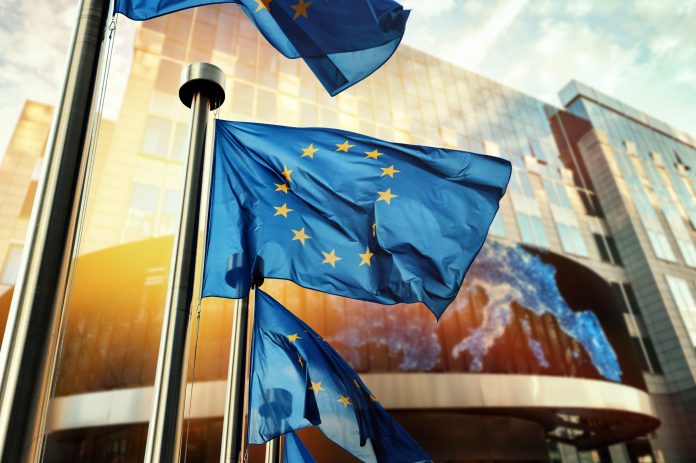Christa Schweng, President, European Economic and Social Committee, states that the future of Europe is digital, green, but first of all, democratic!
While we tend to see the future from the digital and green perspectives, we often forget about two other parts of the equation that are just as indispensable – social inclusiveness and democracy. In fact, the former cannot exist without the latter.
Let’s face it – after 60 years of peace and integration in Europe, we started taking democracy for granted. Prematurely, it seems, as numerous European governments are challenging European values, disregarding the rule of law, undermining the freedom of the press and denying the rights of minorities.
Moreover, we believed that digitalisation would automatically democratise knowledge and boost participatory democracy. However, we are also being confronted with the dark side of digitalisation. Election manipulation, fake news and hate speech are leading to a crisis of trust and are fuelling societal divisions.
The COVID-19 pandemic has sped up the digitalisation of numerous activities, but it also deepened social inequalities and put those already in a situation of exclusion at even greater risk. It has challenged and changed our societies – the way we learn and the way we work, but also the way we interact with each other.
Participatory democracy – a remedy?
How can we address all these challenges at once? First and foremost by working to build new foundations for democratic participation. On top of being green and digital, the future of Europe must also be more democratic – that was the conclusion of this year’s Civil Society Days organised by the European Economic and Social Committee. None of these aspects can be side-lined.
Participatory democracy itself should be regarded as the foundation of post-COVID reconstruction. The key to this lies in mobilising citizens. The UN Agenda for Sustainable Development makes it clear that democratic participation by all social groups is a prerequisite for sustainable development. And in this regard civil society, the social partners, and the EESC and National Economic and Social Councils have a decisive role to play. We need to integrate digitalisation and sustainability of our economic and social systems into the framework of a democratic culture.
Democracy and sustainability do influence each other. If we do not act sustainably, sooner or later people will be left behind, leading to even more social injustices and environmental degradation, which at the same time can fuel discontent and conflict. There are no realistic alternatives to democracy if one wants to achieve true sustainability. Participatory democracies are better suited to finding solutions during transition periods.
Digitalisation must become an ally for democracy. We need a digital economy that incorporates our societal values, allowing all parts of society to benefit from it. The European “human-in-command” approach towards AI could serve as one example of this.
Conference on the Future of Europe – a test
The Conference on the Future of Europe, which was officially launched in May, is a unique opportunity to prove that, through participatory democracy at the European level, we are capable of addressing people’s concerns and fears and that Europe can respond to these concerns with concrete and measurable actions.
The EESC is working on a whole range of activities within the framework of the Conference, aiming to reach out and listen to citizens involved in civil society organisations from all corners of Europe – including the most remote – and to report back and follow up on their ambitions. We want civil society to reconnect with the EU on a profoundly rational and emotional level.
Through education and culture towards recovery
As the EU invests unprecedented resources in recovering from the pandemic, it is time to recognise that education and culture are also indispensable for recovery. Appropriate education and training systems, along with re-training and up-skilling, will allow all people of all ages to acquire the skills they need to seize future opportunities. Funds must be earmarked for these sectors in the national recovery and resilience plans that are being prepared by the Member States.
It is of the utmost importance to recognise the equal value of cultural and arts education by mainstreaming STEAM education – science, technology, engineering, arts and mathematics. Cultural values should be incorporated into all educational settings, starting from an early age. Given its inherent nature to our communal life, culture also represents a strategic resource for social cohesion and intercultural dialogue.
Two sides of the same coin
In shaping our post-COVID future, we need a holistic approach more than ever before. Policies linked to the green and digital transitions have a cross-cutting impact on social issues. The aim of green transition is not only to address climate change or environmental degradation, and the aim of digital transition is not only to keep up in the global competitive race. If we look at the broader picture, the aim is to create a better and fairer society and economy where poverty, injustice and gender inequality no longer have a place.
“Leaving no one behind” particularly entails re-empowering as many people as possible so that they can play a positive role as active citizens. This will not happen overnight: it will require constant and consistent action – especially at the local level. This is our joint responsibility! United for the future of Europe.




![Europe’s housing crisis: A fundamental social right under pressure Run-down appartment building in southeast Europe set before a moody evening sky. High dynamic range photo. Please see my related collections... [url=search/lightbox/7431206][img]http://i161.photobucket.com/albums/t218/dave9296/Lightbox_Vetta.jpg[/img][/url]](https://www.openaccessgovernment.org/wp-content/uploads/2025/04/iStock-108309610-218x150.jpg)






